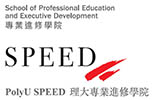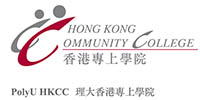雙語社評齊齊聽
[英語 (足本收聽)] Presented by Dr KWOK, Frieda Yuk-yin, Lecturer of Hong Kong Community College, The Hong Kong Polytechnic University
[普通話 (足本收聽)] Presented by Ms QIU, Tina Wei, Lecturer of Hong Kong Community College, The Hong Kong Polytechnic University
The Labour Day holiday in mainland China has been extended to five days. While the Labour Day is traditionally a peak season for consumer activities, the pandemic is making it difficult for this year's holiday to be accompanied by scenes of teeming tourist attractions and shopping malls like before. Even though airfares have been slashed, they have failed to boost air passenger numbers, as tourists prefer to travel in a way and in locations free from the crowds.
During the Labour Day holiday in 2019, the number of domestic visitors was 195 million, generating a revenue of 117.67 billion yuan for the tourist industry. It was an occasion on which everyone was pleased, as people could take a break from the intense pressure of work, businesses could profit from the sales of products and provision of services, and the government could increase revenues through taxes. But all good things come to an end, as there has been a pandemic this year. Though it is basically under control with just a handful of new cases every day, the pandemic has not stopped spreading outside China. Try as one might to guard against the virus, the possibility of a second outbreak or a rebound cannot be ruled out. Therefore no one dares lower their guard.
When the virus was developing rapidly, the mainland authorities' way of tackling it mainly included stringent measures stipulated by the government to which citizens were required to adhere strictly. Things have developed to such a stage that the government has to keep on preventing the virus from spreading but at the same time it has to stimulate spending. The public, still haunted by the dreadful experience, remain cautious. But there are people who feel an urge to go outside and spend money having been in home quarantine for too long. Some are encouraged to do so by vouchers from the government and businesses. The reopening of the economy is being carried out in phases under the leadership of the government.
On the one hand, the government is continuing the policy of free passage on highways and has demanded that operators of tourist attractions sell tickets at a discount. But it requires them to limit attendance at 30% of capacity. Visitors are also required to register with their real names beforehand. Some requirements are even more stringent. The Forbidden City, for example, has a capacity of 80,000 people, but now it has a daily quota of 5,000 visitors only. There are also temporary measures that vary according to the situation. West Lake in Hangzhou, for example, imposes temporary crowd control measures at the entrance after tourists have exceeded a certain number at the Broken Bridge. In every region, tourists are asked to produce their health certificates and have their temperatures taken. There are also strict requirements for the number of times attractions must be disinfected.
True, it is impossible to compare the merits and demerits of the different approaches taken by different countries simplistically. The human race is battling a previously unseen virus, which is one we do not know enough about, and vaccines, our best weapon, are not available yet. It is inevitable that different countries have adopted different approaches. But it must be understood that it is impossible to act alone or stay away from the virus. No matter whether it is the transmission of the virus or economic recovery, the effectiveness of a country's response can affect all other countries in the world. If one acts arbitrarily, one will have to be held accountable to not only one's citizens but also the international community.
控疫不能單打獨鬥 靠政府也靠人民
五一勞動節內地假期延長到5天,這個傳統上的消費旺季在疫情打擊下,旅遊點和商場過去人山人海的情景都難以恢復舊觀,而飛機票即使大幅降價也未能催谷乘客數量大增,遊客則更願意選擇避開人群聚集的方式與地點去旅遊。
2019年五一勞動節假期,國內旅客總人次達到1.95億,旅遊收入1176.7億元人民幣,是一個皆大歡喜的節日,民眾放假紓緩緊張工作的壓力,商家銷售產品與提供服務賺取利潤,政府收稅增加收入。但好景不常,今年遇上疫情,雖然已經基本受到控制,每天只有零星的幾宗新增確診案例,但國外疫情仍然不斷擴散,有可能在防不勝防的情况下出現第二波或者反彈,所以誰也不敢掉以輕心。
內地的抗疫手段,在疫情迅猛發展之際,主要是政府規定的嚴厲措施,要求民眾嚴格遵守,而到了目前這個階段,則是政府既要繼續防疫,也要鼓勵消費;而民間猶有餘悸的部分則仍然謹慎,也有「居家隔離」太久而有外出消費的衝動,也有受到政府和商家派發消費券鼓勵而配合。重啟經濟在政府主導的秩序下逐步實施。
政府一方面實施高速公路繼續免費通行,也要求旅遊點門票打折,但限制接待遊客的人數,一般是在園區容納能力的三成,並且要求事前實名登記預約,也有更嚴格的,比如故宮的容量是8萬人,但目前每天只開放5000個名額,也有因應實際情况而採取臨時措施,比如杭州西湖,當斷橋處遊客超過一定數量時,即臨時在入口處實施人數限制。而所有地方都要求遊客出示健康證明並且量體溫,也嚴格要求對旅遊點的消毒次數等。
誠然,不能簡單地比較不同國家應對疫情的措施來判定哪一種方法的優劣,人類現在打的一場仗,敵人是前所未見的病毒,而人們對敵人的了解還不夠充分,目前更沒有疫苗這種最佳的武器,各師各法是在所難免的,但必須認識到一點,現在已經不能單兵作戰,更不能獨善其身,一個國家的應對成效,無論對於病毒散播或者經濟復蘇的問題,都會影響全球其他國家,一意孤行的做法,不但要對本國國民負責,也要對國際社會負責。
明報社評2020.05.04






